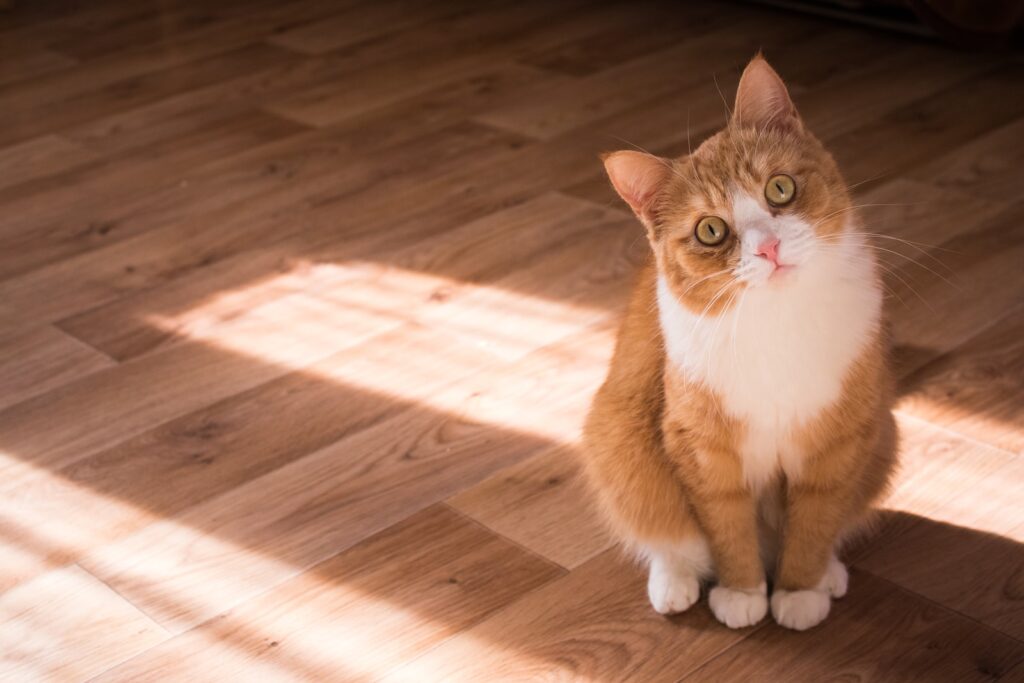Can Cats Eat Spiders? — No, They Can’t
Cats should not eat spiders. While it may seem like a natural instinct for cats to hunt and eat spiders, it is not recommended. Spiders can be toxic to cats and may cause various health issues. It is essential to understand the potential risks and keep your feline friend away from spiders.
Can Kittens Eat Spiders?
Kittens should not eat spiders either. Since their immune systems are still developing, they may be more vulnerable to the potential toxins found in spiders. It is crucial to provide a safe environment for kittens and prevent them from interacting with spiders or other potentially harmful insects.
Things to consider when feeding spiders to kittens?
You should never consider feeding spiders to kittens. Kittens have delicate digestive systems and can easily get sick from consuming spiders. It is best to focus on providing them with a balanced and appropriate diet that meets their nutritional needs.
Nutritional Benefits of Spiders for Cats — Why Cats Can’t Have Spiders
No Nutritional Benefits
Spiders do not offer any essential nutritional benefits for cats. Cats are obligate carnivores and require a diet primarily consisting of meat. While spiders are a source of protein, cats can fulfill their dietary requirements with other safe and appropriate animal protein sources.
Potential Allergies: Can Cats Be Allergic to Spiders?
Cats can be allergic to various substances, including spiders. Allergic reactions vary among cats, and they may experience symptoms such as skin rashes, itching, sneezing, or respiratory issues when exposed to spiders. If you suspect an allergic reaction, it is recommended to consult a veterinarian for proper diagnosis and guidance.
Symptoms of Spider Allergies in Cats
- Skin Irritation: Cats may develop redness, swelling, or rashes on their skin when allergic to spiders.
- Respiratory Issues: Some cats may experience difficulty breathing, wheezing, or coughing when exposed to spiders.
- Gastrointestinal Problems: Digestive disturbances like vomiting or diarrhea can occur as a result of spider allergies in cats.
What to Do If Your Cat Shows Symptoms?
- Consult a Veterinarian: If you notice any symptoms of an allergic reaction in your cat, it is essential to seek veterinary advice for proper diagnosis and treatment options.
- Avoid Exposure: Prevent your cat from coming into contact with spiders to minimize the risk of allergic reactions.
- Follow Treatment Recommendations: If a veterinarian confirms an allergy, they may recommend specific medications or treatments tailored to your cat’s needs.
Recommended Amount: How Many Spiders Can a Cat Consume?
Cats should not consume spiders at all. It is best to keep them away from spiders to avoid potential health risks. Spider bites can be harmful, especially if the spider is venomous. It is important to prioritize your cat’s safety and well-being by preventing any interaction with spiders.
Things to Consider When Feeding Spiders to Cats
Feeding spiders to cats should never be considered. The risks associated with spider consumption outweigh any potential benefits. It is crucial to provide your cat with a complete and balanced diet specifically formulated for their nutritional needs.
How to Keep Your Cat Safe From Spiders
While it may be challenging to completely eliminate spiders from your home, there are steps you can take to keep your cat safe:
- Regular Cleaning: Regularly clean your home to minimize the presence of spiders and other insects.
- Seal Entry Points: Seal any cracks, gaps, or holes in windows, doors, or walls to prevent spiders from entering your living spaces.
- Use Pet-Safe Pest Control: If needed, opt for pet-safe pest control methods to eliminate spiders without risking your cat’s health.
Conclusion
In conclusion, cats should not eat spiders. Spiders can be toxic to cats and may pose several health risks. It is crucial to prioritize your cat’s well-being by keeping them away from spiders and providing them with a safe and appropriate diet. If you suspect any adverse reactions or allergies, consult a veterinarian for proper diagnosis and guidance.






